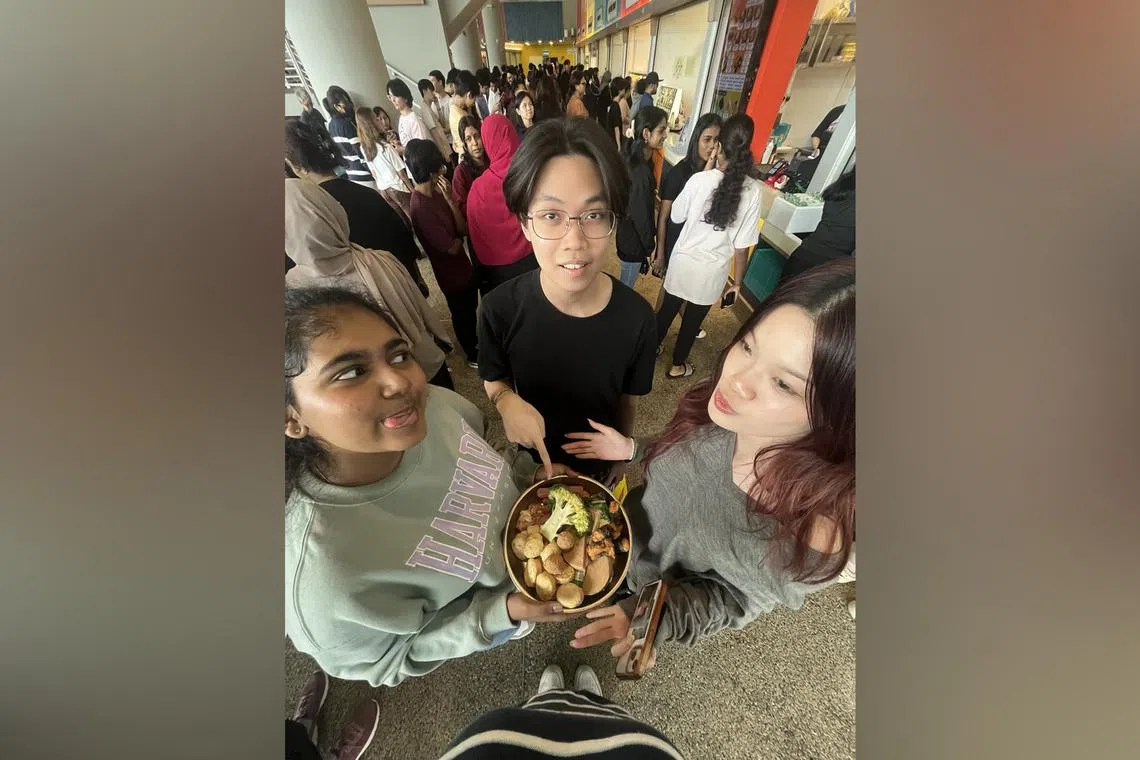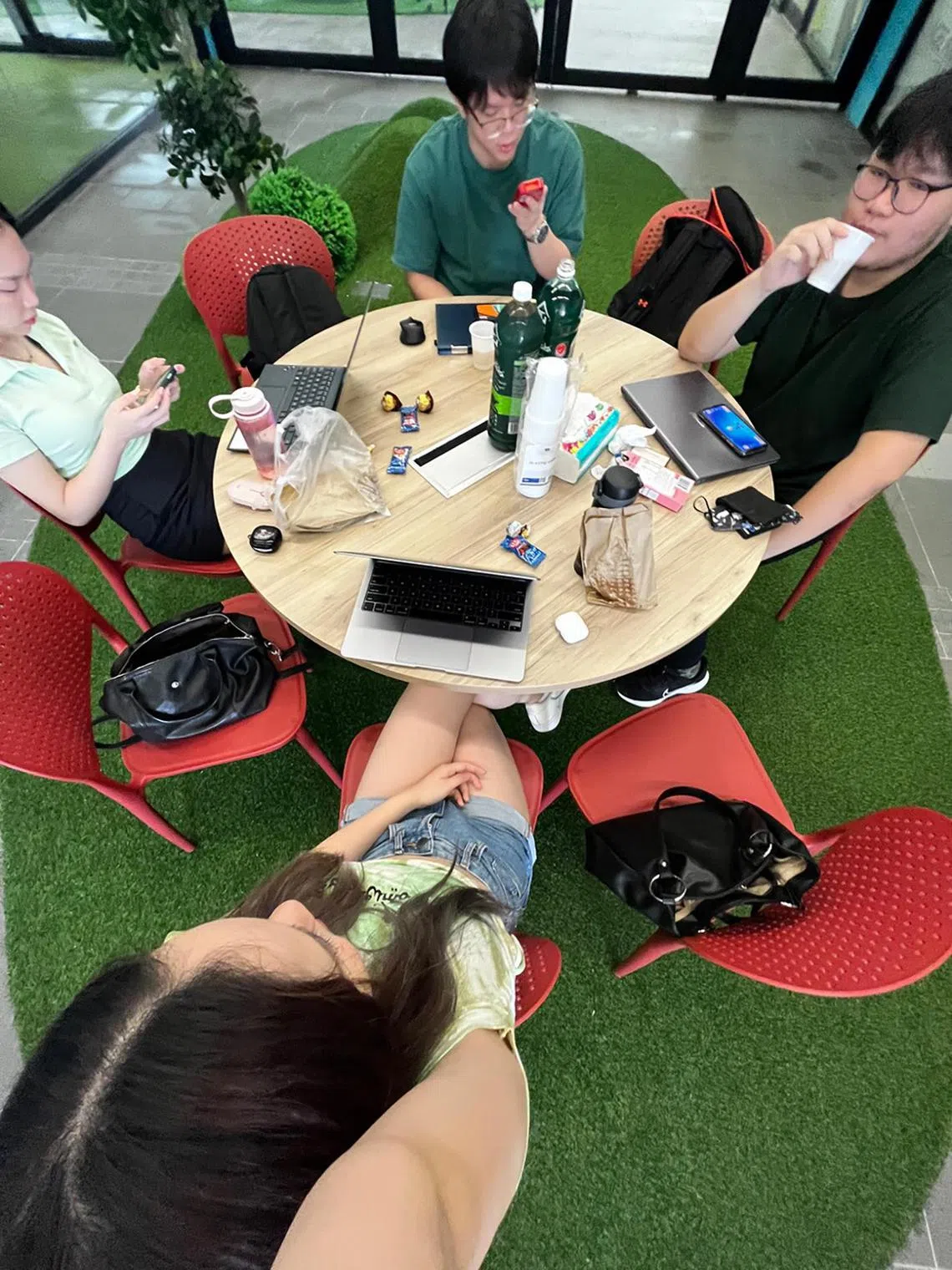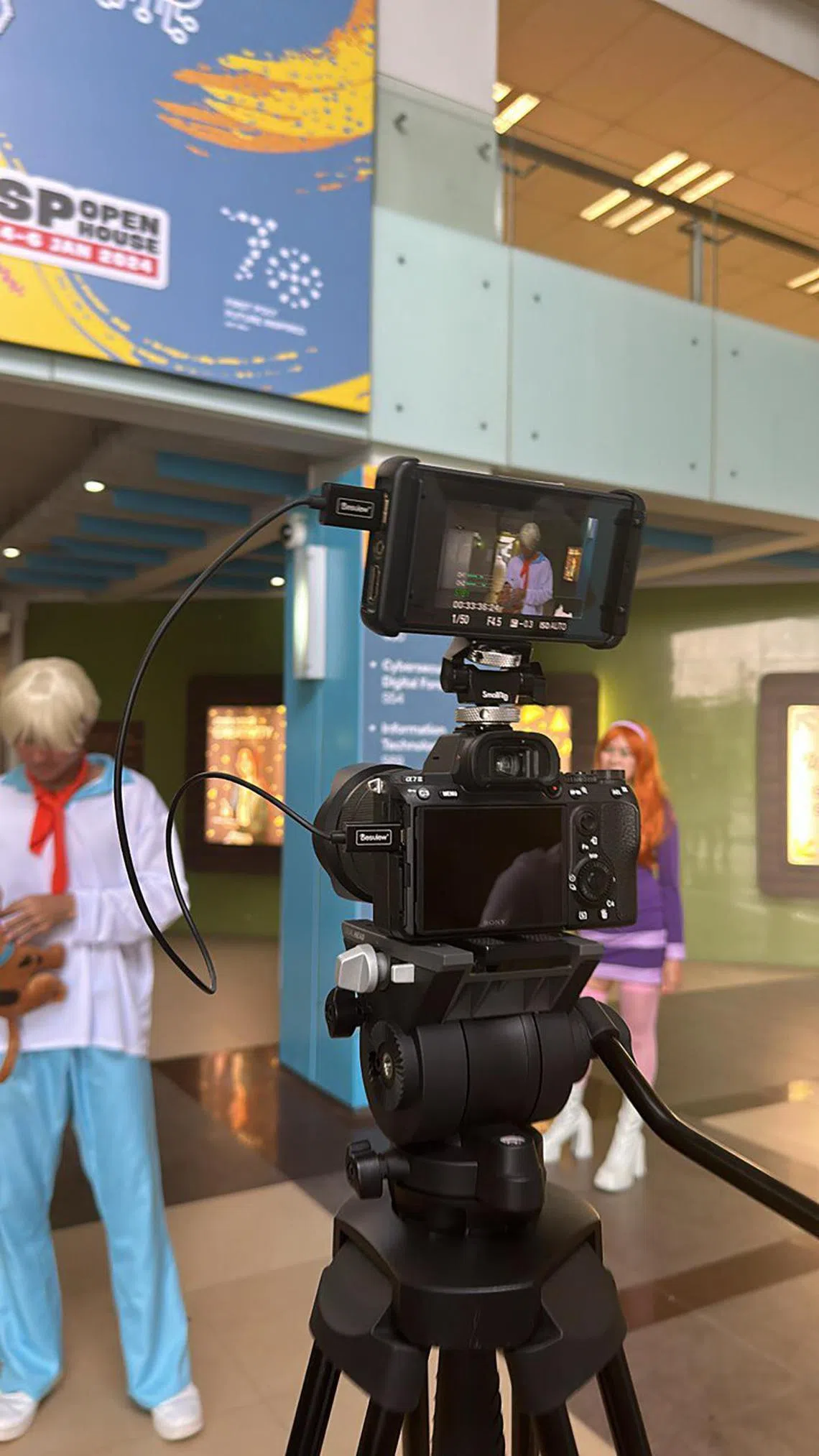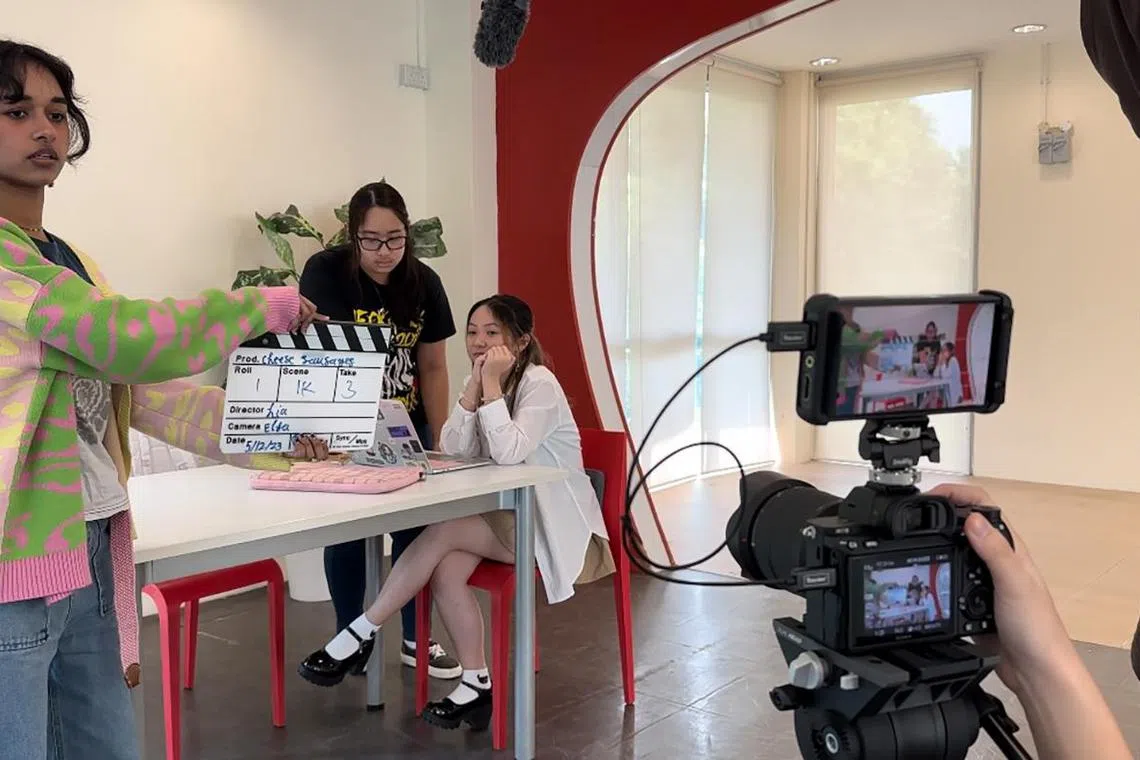Poly survival guide: 5 things every freshman should know
The TL;DR: Polytechnic students share key aspects of school life that every freshman should know – from the kind of work to expect, to your weekly schedule.
Sign up now: Get tips on how to grow your career and money

Republic Polytechnic (RP) student Shabhreen Bhanoo Mohamed Rafi (left) with her friends at the RP campus' South Food Court during lunch break.
PHOTO: SHABHREEN BHANOO MOHAMED RAFI
Starting polytechnic life can feel daunting, especially if you’re unsure of what to expect. Here are five things you should know before embarking on the new journey.
1. Irregular schedules
Unlike the secondary school level where students can spend six hours or more in school daily, it is possible to go up to three days without a single in-class lesson in a polytechnic, or have lengthy free periods.
Ms Shabhreen Bhanoo Mohamed Rafi, 19, a mass communications student at Republic Polytechnic (RP), said: “In Year 1, my most unusual timetable included three-hour breaks, which often led my classmates and me to play card games to pass the time. On some days, my commute to school was longer than the single lesson itself.”
To make full use of her time, she studies on her own or with friends.
“For long breaks, the library is the best study spot! The Library Cafe, which sells drinks and snacks and has sofas to sit on, makes it a very comfortable experience to study with friends or solo.”
2. Slack at your own risk
If you are used to taking it easy and hitting the books only when the exam period rolls around, you will have to adjust your study style if you want to do well.
Ms Megan Mak, 19, said “every assessment, project, and even class participation counts towards the grade point average (GPA)” at the polytechnic.
Unlike in secondary schools and Institute of Technical Education where teachers would thoroughly go through the content and actively check on their students’ schoolwork in class, polytechnics take a self-directed approach, which means students are responsible for their own learning.
“You are often expected to read up on the material before lessons, and even just missing one pre-reading can cause everything to accumulate and pile up,” said Ms Mak, an accountancy student at Ngee Ann Polytechnic. “I worried about maintaining my GPA, especially when I was trying to make up for my slightly lower grades in my second year.”
Her tip for newbies: Score well in the first year to maintain a high GPA – the modules in Year One are easier to digest, and the learning curve isn’t too steep.
Attaining a high GPA directly affects the chances of entering one’s desired course in university. That’s why many students obsess over it, even when the first semester has just begun.
3. Less face time with friends
In the lecture-and-tutorial teaching environment, you may find that you don’t get as much face-to-face time with friends.
Ms Rachael Lim, a 19-year-old nursing student at Nanyang Polytechnic, said: “The most unexpected part about polytechnic is that we don’t get to spend that much time with our friends as almost all of our lectures are conducted online, and even if we go to school, it’s only for a few hours a day.”
As for Ms Mak, she has not joined any co-curricular activity (CCA) and rarely engages in school events. She has also not chosen a specialisation path in her third year, so she remains in the same class as before. Although her social circle is limited to the same group of classmates, she has two or three friends with whom she hangs out regularly.

Ms Megan Mak and her team during the final week of their group project in 2022.
PHOTO: COURTESY OF MEGAN MAK
For some students, work – not socialising – is a priority. But you can still liven up your polytechnic life by attending campus events or joining clubs.
Said Ms Bhanoo: “Over my three years in RP, I have attended Momentum Dance Festival, Ignite Music Festival and also plays by RP’s Operation Theatre. The best part is that these are mostly free and held within school, so you can just head on down after classes with your friends.”
4. Group work dynamics
At polytechnics, group projects can make or break your GPA. You may end up with groupmates who do not pull their weight, which can create problems for the entire team.
That was the experience of Ms Syasya Amalia Jamali, 23, who is studying for a diploma in media, arts and design at Singapore Polytechnic.

Singapore Polytechnic student Syasya Amalia Jamali was the production designer and handled the wardrobe, set design and props for a graded video project in 2023.
PHOTO: COURTESY OF SYASYA AMALIA JAMALI
“I struggled with a groupmate who was not only stubborn and unwilling to listen to others, but also shifted the blame to others,” she recalled.
“At least with slackers, you can sort of just pick up the work.” But with people who actively get in your way or refuse to play their part, their attitude problem affects how you view them on a personal level, she added.
“I learnt to just suck it up because most of the time, those are the types of people who won’t change, no matter how much you try to communicate honestly. I just ranted to my friends to let out the frustration.”
To better handle group work, her strategy is to give every member a list of tasks to do and post these assigned tasks in a group chat, which adds pressure for everyone to be accountable.

Singapore Polytechnic student Syasya Amalia Jamali at the shoot for an in-class group assignment during a video production module in 2023.
PHOTO: COURTESY OF SYASYA AMALIA JAMALI
5. Time to learn new things
As your schedule becomes more flexible compared with during your earlier years of schooling, you’ll find numerous opportunities to explore new interests.
There are many more CCAs or interest groups in polytechnics that are rarely available in secondary schools, such as clubs for deejaying, astronomy, magic, culture and languages. With varying levels of commitment needed, you can join as many as you like, with the option to leave at any time.
As the CCA point system differs across schools, do some research beforehand, as this can help you when building your portfolio or applying for scholarships.
Mr Caleb Gan, 20, a law and management student at Temasek Polytechnic, said: “By joining CCAs like the Students’ Union and diploma interest group LawInc, I got involved in planning activities for my cohort. That experience was definitely a highlight – it gave me the chance to connect with people from different backgrounds, improve my leadership skills and create some lasting memories.”
He added: “If I could advise my Year One self, I’d say: Don’t be afraid to step out of your comfort zone. Take every opportunity that comes your way, whether it’s joining a new CCA, taking on a project, or attending an event, you never know what impact it could have on your journey.”
TL;DR covers stories for and about youth aged 17 to 23, to help you slay, serve and survive school and life like a boss. If you’re headed to or are in junior college or pre-university, polytechnic or ITE in 2025, look out for an e-mail on how you can keep up with all our coverage. Follow us on
www.instagram.com/st.tldr
for more.


